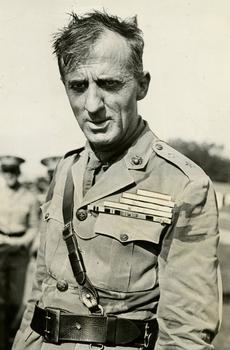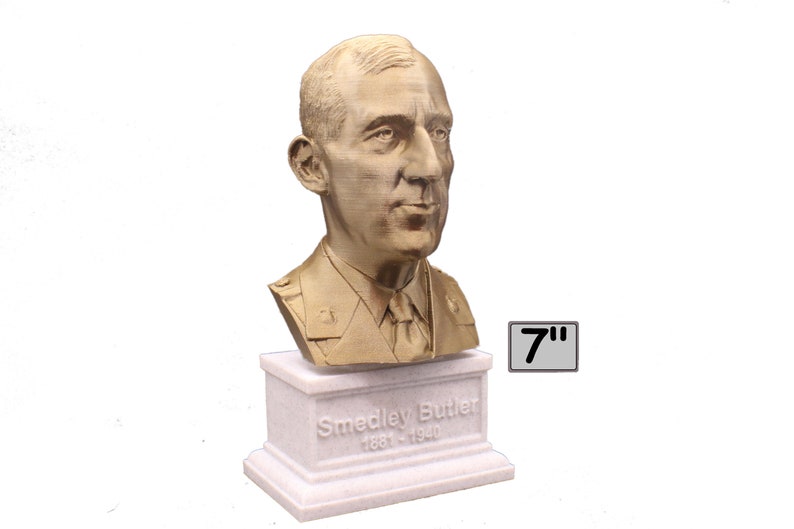


Who Was Smedley Butler? Major General Smedley Butler. While news media at the time mocked Butler’s story, recently discovered archives have revealed the truth behind Major General Butler’s claims. Even more unbelievable were his claims of who was involved in the plot – respected names like Robert Sterling Clark, Grayson M.P. Supposedly in the works since 1933, the claims of the conspiracy came from a very conspicuous and reliable source: Major General Smedley Butler, one of the most decorated war heroes of his time. Roosevelt, in favor of a fascist government. For the United States, Butler recommends that the Navy be limited, by law, to operating within 200 miles of the coastline, and the Army restricted to the territorial limits of the country, ensuring that war, if fought, can never be one of aggression.In 1934, a colossal claim reached the American news media: There had been a plot to overthrow President Franklin D. Limitation of militaries to self-defense.Eligible to vote would be those who risk death on the front lines. He also suggests a limited referendum to determine if the war is to be fought. Acts of war to be decided by those who fight it.Let the officers and the directors and the high-powered executives of our armament factories and our steel companies and our munitions makers and our ship-builders and our airplane builders and the manufacturers of all other things that provide profit in war time as well as the bankers and the speculators, be conscripted - to get $30 a month, the same wage as the lads in the trenches get. The only way to smash this racket is to conscript capital and industry and labour before the nation's manhood can be conscripted. It can be smashed effectively only by taking the profit out of war. Butler suggests that the means for war should be " conscripted" before those who would fight the war: In the booklet's penultimate chapter, Butler recommended three steps to disrupt the war racket: In China I helped see to it that Standard Oil went its way unmolested. I brought light to the Dominican Republic for American sugar interests in 1916. I helped purify Nicaragua for the international banking house of Brown Brothers in 1909-1912 (where have I heard that name before?). I helped in the raping of half a dozen Central American republics for the benefits of Wall Street. I helped make Haiti and Cuba a decent place for the National City Bank boys to collect revenues in. I helped make Mexico, especially Tampico, safe for American oil interests in 1914. Out of war a few people make huge fortunes.īutler confesses that during his decades of service in the United States Marine Corps: It is conducted for the benefit of the very few, at the expense of the very many. Only a small 'inside' group knows what it is about. A racket is best described, I believe, as something that is not what it seems to the majority of the people. It is the only one in which the profits are reckoned in dollars and the losses in lives. It is the only one international in scope. It is possibly the oldest, easily the most profitable, surely the most vicious. In War Is a Racket, Butler points to a variety of examples, mostly from World War I, where industrialists, whose operations were subsidized by public funding, were able to generate substantial profits, making money from mass human suffering. A scanned copy of the original 1935 printing is available for download, in part or in whole, on the HathiTrust website, along with a detailed description of the copyrights. Thomas had written Smedley Butler's oral autobiography.Īccording to the HathiTrust online library, the book published in 1935 is in the public domain. In an introduction to the Reader's Digest version, Lowell Thomas praised Butler's "moral as well as physical courage". His work was condensed in Reader's Digest as a book supplement, which helped popularize his message. The speech was so well received that he wrote a longer version as a short book published in 1935. He had been appointed commanding officer of the Gendarmerie during the 1915–1934 United States occupation of Haiti.Īfter Butler retired from the US Marine Corps in October 1931, he made a nationwide tour in the early 1930s giving his speech "War Is a Racket". Based on his career military experience, Butler discusses how business interests commercially benefit from warfare. Butler, a retired United States Marine Corps Major General and two-time Medal of Honor recipient. War Is a Racket is a speech and a 1935 short book by Smedley D.


 0 kommentar(er)
0 kommentar(er)
